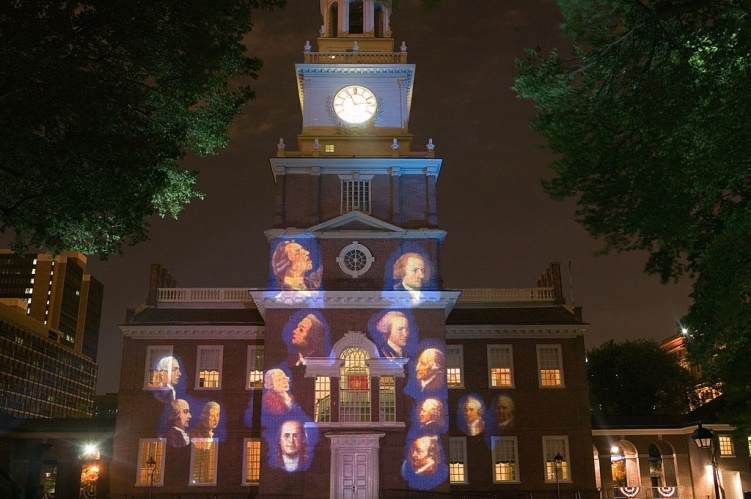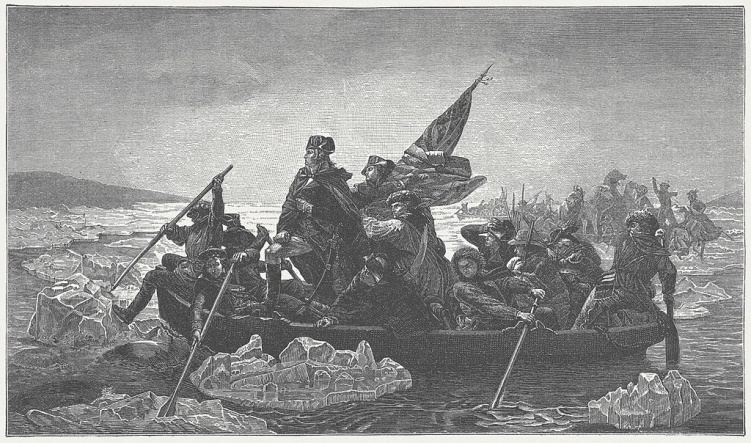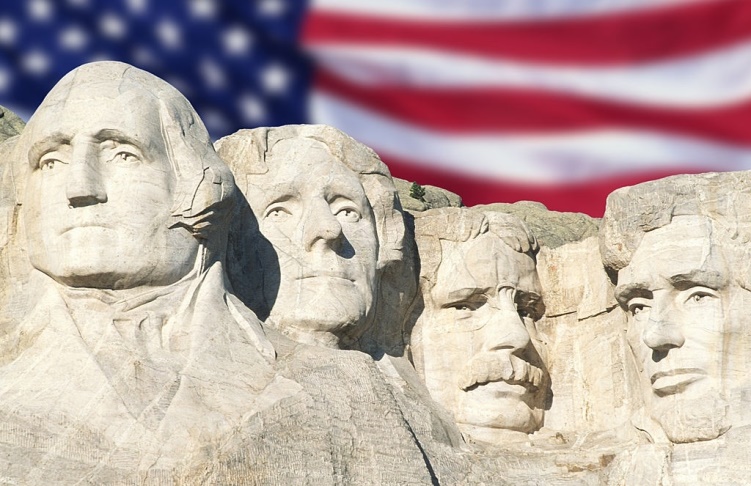Enlightenment Influence On The American Revolution Essay
Question
Task: Write an essay on how the enlightenment era influenced the founding fathers of America and the ideologies which greatly influenced the pre and post American Revolution period.
Answer
Introduction:
The enlightenment period is referred to the time when the 13 American Colonies had an awakening and with the leadership of some great intellectuals and politicians they gave rise to the American Revolution for the freedom from British Colonials. The ideals of enlightenment greatly influenced the American people and united the colonies in the 18th and 19th century, and led to the formation of the “United States of America”. The enlightenment influence on the American Revolution essay goes back in time and explores the roots of the American Revolution and the foundation of the constitution. The essay focuses on the great leaders and front runners of the enlightenment era, who played a significant role in rallying the American people in a movement to obtain their freedom from the English. The essay also sheds light on the six key ideologies of enlightenment influence on the American Revolution.

The enlightenment of American people redefined their ideologies and laid the foundation of the USA as we know it today. It gave rise to a practical way of life and led to the implementation of scientific reasoning to religion, politics and science. In addition it contributed to giving arts, music, other form of discipline the recognition it needed. The American enlightenment era led to the foundation of different colleges and universities such as the King’s College New York, University of Pennsylvania, Yale College among others, and led to a change in the curriculum and addition of philosophy, astronomy and other disciplines in the curricula of some notable universities including, Harvard and Princeton University.
Thinkers of Enlightenment Era and their Contributions
The ideologies of the American enlightenment period were inspired and loosely based on the European Enlightenment ideologies; however, there were many instances of unique ideas and theories as well. The leaders of the revolution and thinkers, including Benjamin Franklin, John Adams, Thomas Jefferson, James Madison, and Thomas Paine , rallied for the revolutionary ideologies such as religious tolerance in the nation, scientific rationality, and experimental nature of political organisations. These ideologies later came to being the principals upon which the United States of America would function. The next segment of this enlightenment influence of the American Revolution essay describes the contributions by the key frontrunners of the American Revolution and the enlightenment era.
John Adams
John Adams is regarded as one of the founding fathers of the USA; he was an attorney, diplomat, statesman, and writer and served as the second president of the United States of America. John Adams was also a writer and published several political publications, in which he critiqued the faults in the canon and feudal law, and addresses them as two great tyrannical systems. The other publications of John Adams defended the ideology of republicanism, and promoted a balanced and branched governance to keep checks on one another. He also criticized the rule of a pure democracy sighting the greed of mankind for power, control and reputation. He claimed that governance of the masses should be controlled by justice, truth, conscience and assisted reasoning.
James Madison
James Madison is hailed as the “Father of the American Constitution” and served as the fourth presidents of the USA. He was a diplomat, statesman, philosopher and co-authored The Federalist Papers. In the multiple editions of those papers, he advocated his ideologies for a large republic and the separation of powers. He also explained in Federalist no. 10 that formation of groups with shared interests pose an inevitable threat to the republican government. He built on John Adams idea of having two parallel authorities to propose ambitions and counter ambitions, which would assist in having a government that can regulate itself.

Thomas Jefferson
Thomas Jefferson was an American statesman, diplomat, architect, lawyer and one of the founding fathers of America. He drafted the American Constitution and served as the third president of the USA. Thomas Jefferson had a significant influence over the formation of the American Constitution. He advocated that the constitution be of a nature, so as to evolve and incorporate the changes in the human kind. He claimed that laws and regulations must go hand in hand with the progress, inventions, new discoveries and changing times. He promoted and dedicatedly advocated the ideology of organic constitutionalism and believed that a constitution should be a live document that can be changed and transformed with changing thoughts and times.
Benjamin Franklin
Benjamin Franklin was an inventor, scientist, diplomat, statesman, activist, postmaster, and a political philosopher. He was also one of the founding fathers of USA, and helped Thomas Jefferson in drafting the constitution; however, he never served as the elected president of the USA. He was a stern believer of enlightened self-interest and claimed that the pursuit of material wealth was only honourable when it is aligned with the welfare of the masses. Benjamin Franklin believed in philanthropy and voluntarism and claimed that in order to attain moral perfection, thirteen values must be cultured which were: humility, chastity, tranquillity, cleanliness, moderation, justice, sincerity, industry, frugality, resolution, order, silence and temperance. Franklin was an advocate of federalism and criticized parochialism and promoted the ideology of religious tolerance for peace and harmony among the nation.
The ideologies and the political agendas in favour of the American population promoted by the forerunners of the enlightenment period contributed greatly in uniting the thirteen American colonies and winning the revolutionary war for independence from Great Britain.

Key Ideologies of the Enlightenment Period
The next section of this enlightenment influence on the American Revolution essay explores the 6 important ideologies and theories which played an important role in the American revolution. Several of these ideologies have been inspired from great European philosophers and thinkers, whereas, others are completely unique and are an amalgamation of American and European ideologies.
Scientific Reasoning
Scientific reasoning is was one of the most important ideologies of the enlightenment era as highlight in this enlightenment influence on the American Revolution essay. The admiration for scientific reasoning for the liberation was explicitly connected to the development of deism and suspicion about the ideologies obtained from religion. Deists participated in research exploration not just to appease their curious mind but also to react appropriately to a spiritual enlightenment to reveal the natural existence of god. Breakthroughs in scientific understanding — be it rejecting the galaxy's sun - centred model due to the significant proposals of Copernicus, Kepler, and Galileo, or discovering laws of nature including Newton's numerical justification of gravity — excluded the requirement for a deity who perpetually intervened.
The ideology of scientific reasoning had already started taking shape with the publication of 'Principia' by Sir Isaac Newton in 1660. It led to the formation institutions for scientific research in England, France and Germany. Prior to the American revolution, scientists and philosophers were associated with the Royal Society of England. It changed when Benjamin Franklin assisted in the formation and served as the president of the American Philosophical Society. Owing to his numerous practical innovations and the related research on electrical energy, Benjamin Franklin was regarded as one of the most influential American scientists in the enlightenment period.
Tolerance
Tolerance for differences was advocated by several founding fathers and forerunner od the American revolution. The enlightenment influence on the American revolution essay identifies it as one of the most popular ideology of the Enlightenment period. It expressed their notion that hatred or despair of other races and cultures impeded with trade relationships, wiped out freedom of speech and expression, stripped away the foundation of nation-wide companionship, and prompted to oppression and conflict. Wearying of religious conflicts European moral philosophers envisioned an era wherein informed rationale and not religious moralism, ruled relationships among different cultures with allegiances to various faiths. The Protestant Reformation and the Treaty of Westphalia greatly diminished the Catholic priesthood, encouraged liberal democratic structures and issued the provisions for the flourishing of autonomous nation-states.
Several philosophers of age of enlightenment, such as Benjamin Franklin, Thomas Jefferson and James Madison, reviewed and concurred with John Locke's A Letter Concerning Toleration. Locke claimed that administration is inadequate to assess the correctness or falsity of denouncing belief systems, faith could not have been pressured and the consequence would just be bigger cultural and religious conflict if tried. Civilian authority should therefore safeguard freedom of religious expression, the freedom to worship as one pleases (or not pray whatsoever), and abstain from constructing an authoritative state-sanctioned cathedral. For the founding members of United States, the new nation was to become a country where people of every religion or no religious belief may settle and prosper freely and work collaboratively without worries of authorities or fellow countrymen being persecuted.
Conservatism
Conservatism was strenuously portrayed in the enlightenment influence on the American Revolution essay. Although the enlightenment influence on the American Revolution primarily pertains to liberty and republicanism, however, during the final phase of the enlightenment era, the French revolution gave birth to a trend of conservatism. The enlightenment era gave rise to the string of anti-enlightenment ideologists as well. There are various ideals regarding human behaviour from the enlightenment period that are shatters when administered on different human cultures. For example, Enlightenment beliefs in fundamental human rights proclamations do much more damage in the long run if they supersede the norms and belief systems of particular countries, areas, and cities. Like the classical republicans, Edmond Burke asserts that human character is the product of living in a democratic regime, and not a set of fundamental human rights that dictated our socio-political interactions.

Republicanism
Traditional republicanism is a dedication to the concept that a country should be governed as a republic where a leadership election determines the quality of the nation’s finest government official, instead of a declaration to a hereditary claim. Republican ideas entail community nationalism, righteous nationality and public persona founded on assets. Republicanism is an ancient notion, which deviates from initial liberalism as rights are not believed to be given by the almighty, but are created through a collaborative belief among the people of the society. People exercise sovereignty within the framework of social human relationships, cultural affiliations and other traditions, not as independent entities set apart from their socio-political affiliations, on the contemporary republican view of freedom. In this sense, for the traditional republicanism, freedom is favourably classified by the constitutional democracy, rather than adversely represented in terms of the natural regulation of the pre-social entity.
The Enlightenment influence on the American Revolution essay, while exemplified by the French enlightenment era, also endorsed the concept that a country must be ruled as a republic, in which the leader of the nation is elected democratically, not selected via an inherited royal lineage. After being elected to the nation's highest official position, George Washington controversially declined to accept when given a royal status, choosing the much more republican's position of President instead. Although serious academic discussion prevails over perceived significance of liberalism and republicanism in the form of enlightenment influence on the American Revolution, there's been a general recognition of the outlook that republican principles are a major influence on the enlightenment ideals.
Liberalism
A further ideology which is essential in this enlightenment influence on the American Revolution essay is Liberalism. Liberalism is the concept that humanity possesses fundamental rights and also that power of authorities is not arbitrary, but focused on the acceptance and acknowledgement of the governing body. Instead of an extremist or transformative philosophy, liberalism was deeply embedded in the conventional solidarity and respectful Protestantism adopted by Northern European merchants, especially Denmark and England. Liberals favoured the values and beliefs of the working class above those of the aristocratic class, a worldview of considerate secularism which can't differentiate between consumers or residents on the basis of colour or culture or religion, a judicial system dedicated to the safeguard the personal property rights and an ideology of powerful individual freedom over the detached authoritarianism linked with colonial provisions. Liberals also favoured the blinkered of religious ideology or regulatory directives to logical reasoning and free flow of information. Liberal ideology had been bashing-authoritarian approach in this sense. While liberalism eventually became aligned with democratic society and a strong segregation of public and private spheres, initial liberalism favoured a parliamentary system that shielded freedom of speech and expression and activism, the freedom to protest the authorities, the freedom of religion and segregation of church and governance and the combination of public and private interests in philanthropy and enterprise development.
Natural Religion
The final ideology presented in this enlightenment influence on the American Revolution is the deism or natural religion. European enlightenment philosophers conceptualised heritage, culture and stereotyping as obstacles to acquiring real understanding of humanity's laws of the universe. The alternative was deism or natural religion, to fully comprehend the presence of a creator as separated from religious scriptures, divine commandment, demonstrated religious doctrine, mythology, and supernatural events; rather, to base religious ideology on physical universe justification and observance. Deists esteemed God as a sensible divine being. A sensible deity enriched humankind with reasoning in order to determine in laws of nature. It was God who designed the fundamental laws governing existence and subsequently human beings realise the will of God via clear thinking and prudent intervention. Generally Deists have been Protestants, expressing a disregard for religious ideologies and unquestioning loyalty to the Catholic Church 's methods. Instead of fighting Christian church representatives with violence and hatred, the majority of deists committed to the use of livelier ammunition like humour and condemnation.
Conclusion
The ideologies presented in this enlightenment influence on the American revolution essay greatly defined the revolutionary movement which led to the formation of the United States of America. In addition to the four fore runners of the enlightenment movement and the founding fathers of USA, were majorly influenced by the European enlightenment and the ideologies presented by them. It impacted their beliefs and led them to form an uprising against the British colonial rule.
Even in the post-revolution days, the ideologies followed in the enlightenment period palyed a significant role during the formation of the constitution of America. Benjamin Franklin, Thomas Jefferson, John Locke, James Madison, John Adams and several other American, and European thinkers adopted ideologies which shaped the great nation of USA. The declaration of independence and the formation of the constitution saw various amendments pertaining to the six ideologies explained in this enlightenment influence on the American revolution essay.
Bibliography
White, M.G., 1978. The philosophy of the American Revolution (p. 16). New York: Oxford University Press.
Bailyn, B., 2017. The ideological origins of the American Revolution. Harvard University Press.
McLean, I., 2010. Scottish Enlightenment influence on Thomas Jefferson’s book-buying: Introducing Jefferson’s libraries.
Berman, H.J., 1992. The Impact of the Enlightenment on American Constitutional Law. Yale JL & Human., 4, p.311.
Israel, J., 2013. Democratic enlightenment: philosophy, revolution, and human rights 1750-1790. Oxford University Press.
Ferguson, R.A., 1997. The American Enlightenment, 1750-1820. Harvard University Press.
Dworetz, S.M., 1989. The unvarnished doctrine: Locke, liberalism, and the American revolution. Duke University Press.
Valeri, M., 1989. The New Divinity and the American Revolution. The William and Mary Quarterly: A Magazine of Early American History and, pp.741-769.












